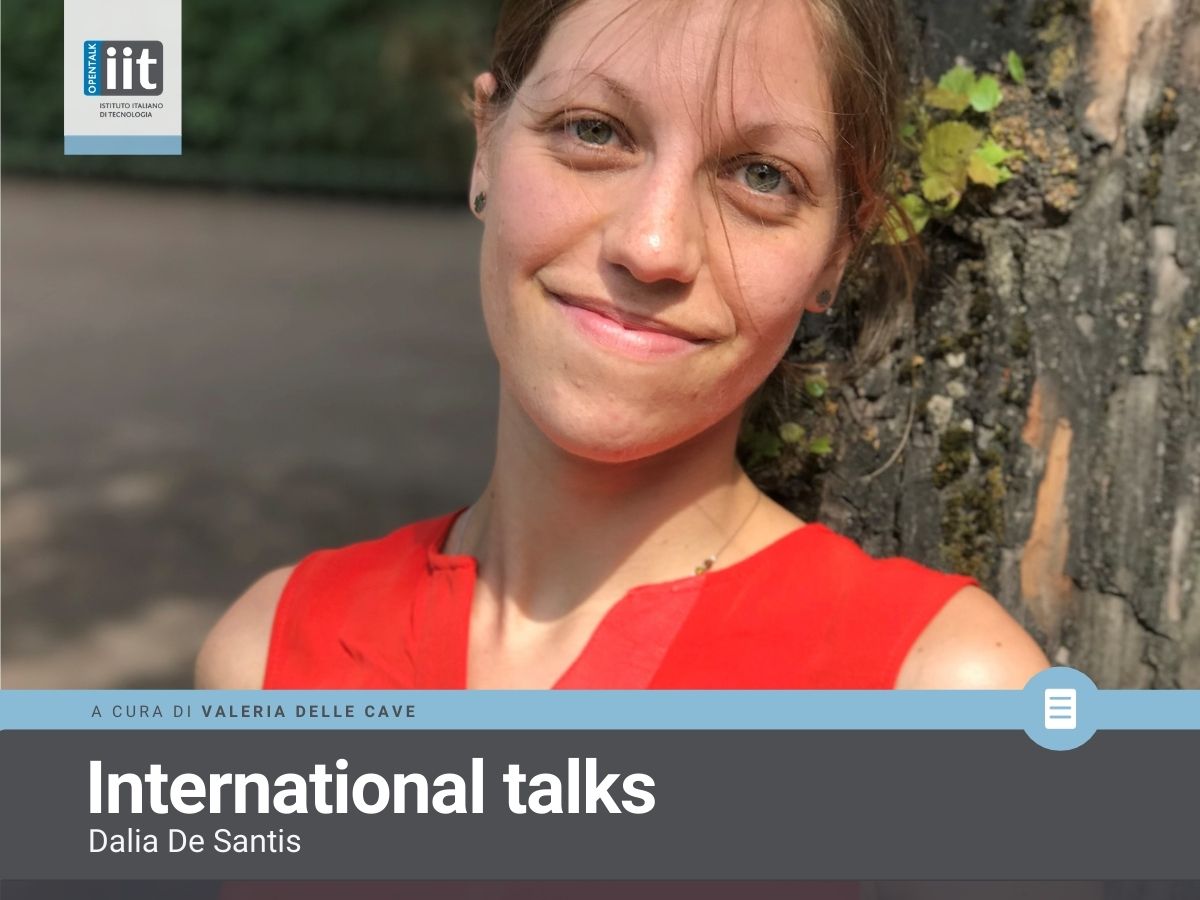Hacking the brain: how to build better machines for flexible brains
Italy is a wonderful country, even during a pandemic.
I came back to Italy to complete the work started with my Marie-Curie project after spending the last 4 years working in the United States. My timing was impeccable, as I landed right in the beginning of the pandemic. Science, together being reunited with my family and friends, has been my lifeboat. When I first got to the new lab at IIT in Genova after months of isolation, I felt a mix of excitement and worry as I was reliving through the first day of school, meeting new colleagues and old friends I left after getting my PhD there some years before.
When I was asked to write about my experience as a researcher, my first thought went straight back to the time I had to pick my university career. That was my first “leap of faith”, so to speak. I never thought I wanted to do research. In fact, I wanted to become a primary school teacher. Even though my high school education had very much been centered on literature and arts, I decided to give in to my attraction to science and I took on Biomedical Engineering in Milan. It was the first time I moved out from my family, which, combined with my not-very-scientific background made my first semester a little steep. Despite the initial difficulties, I was carried away by the wave of novelty as I discovered Informatics, Electronics, and human Physiology. While working through my master thesis, I first got in touch with experimental work in interfacing with the nervous system. I quickly grew more and more passionate to know how technology could be used to improve our quality of life. That was it. After taking the first bite from the science cake, I decided I wanted to have more, and I landed in Genova for the first time to start my PhD in Robotics and Cognitive Sciences at IIT. There I found a fantastic team and a wonderful mentor who supported me through those years and were pivotal in guiding my growing interest for technologies applied to stoke rehabilitation and the study of motor learning and control.
Even if I have never really enjoyed big changes in my life, I somehow managed to take several sharp turns. The latest one after my coming back to Italy, was leaving for Chicago to start my post-doc. I had the unforeseen opportunity to work with one of my PhD idols, Prof. Mussa-Ivaldi at Northwestern University and I simply could not let it slip away. During my first year of post-doc, I was awarded the Marie Curie fellowship for the project, REBoT (Re-Empower the Body after Tetraplegia). I have always been fascinated by the ability of our nervous system to rewire, repair and change in response to the stimuli it receives, or is deprived of, during the course of our lives. With my research I want to understand the mechanisms behind the brain’s flexible behavior and design human-machine interfaces that hack the nervous system for enhancing and restoring abilities after neurological injuries. I will never stop thanking my good star and the MSCA fellowship for giving me this fantastic opportunity to pursue my own research and to radically broaden my perspectives.
Indeed, the experience at Northwestern University has been invaluable to me and life abroad has been a game changer. At first, everything in Chicago made me feel like I was in a Hollywood movie. The buildings, the Midwestern attitude, the Winters, Thanksgiving’s turkey and Independence Day, people going nuts for baseball and college football finals. Then, little by little, I started feeling at home in a foreign country, and then the country started feeling a bit like home, especially thanks to the wonderful people I found there. Working in the USA, however, felt quite different than what I was used to. The pace during my PhD in Italy was quite frantic, three years felt too short of a time for getting started in a research field (PhD comics are extremely actual!). After joining the new lab, I noticed how everyone worked regular hours and appeared to be more relaxed. That might have been an exception, but nevertheless made me rethink the importance of the work/life balance. I also noticed how students started being exposed to grant writing already during their PhD and how this aspect was valued early on in their careers as well as developing some teaching experience. During my years at Northwestern I also came to appreciate the efforts for promoting a diverse and inclusive community and the many possibilities to interact with associations promoting research and education within the university and outside, as the Chicago chapter of AIRIcerca – the association of Italian researchers in the world.
As Marie Curie once said, “One never notices what has been done; one can only see what remains to be done.” Looking down the road, it is hard to see what will be coming. But I have learnt one thing: no one wins alone. Let’s travel Science together and support each other!
Dalia De Santis is a researcher (Marie Curie Fellow) at the Robotics Brain and Cognitive Sciences Research Line in IIT’s Center for Human Technologies in Genova. Her research programme has received funding from the European Union’s Horizon 2020 research and innovation program under the Marie Skłodowska-Curie grant agreement nr 750464.

